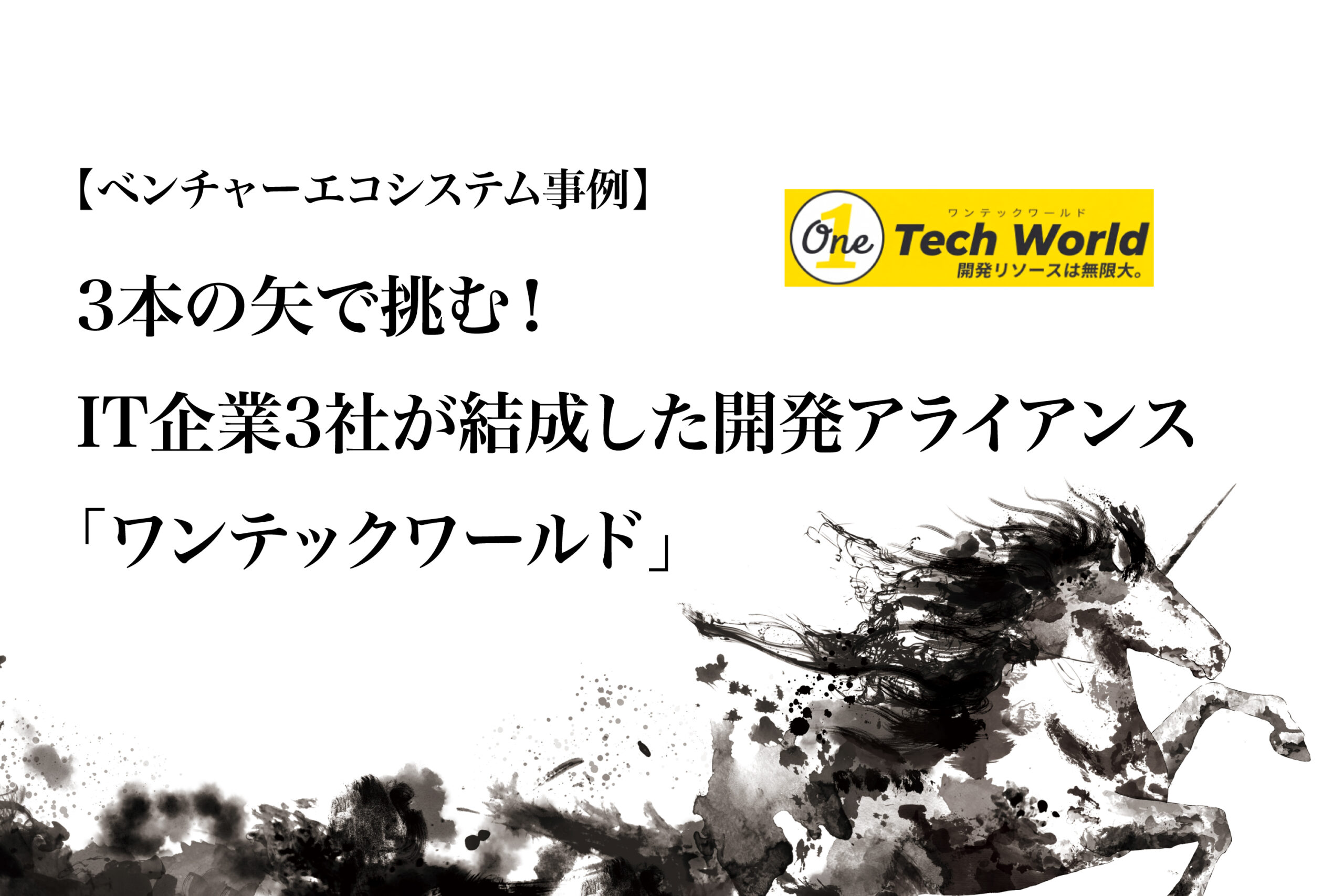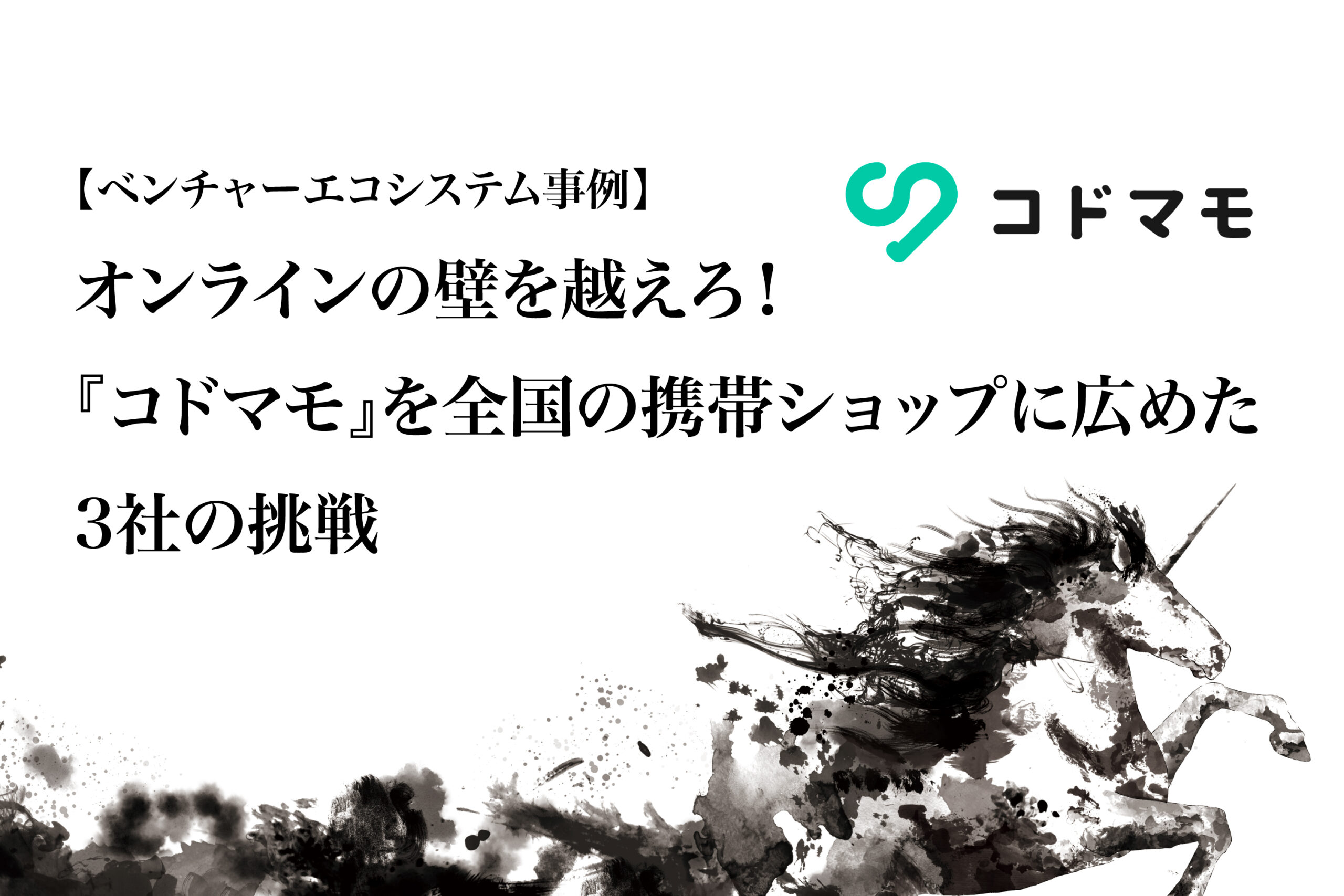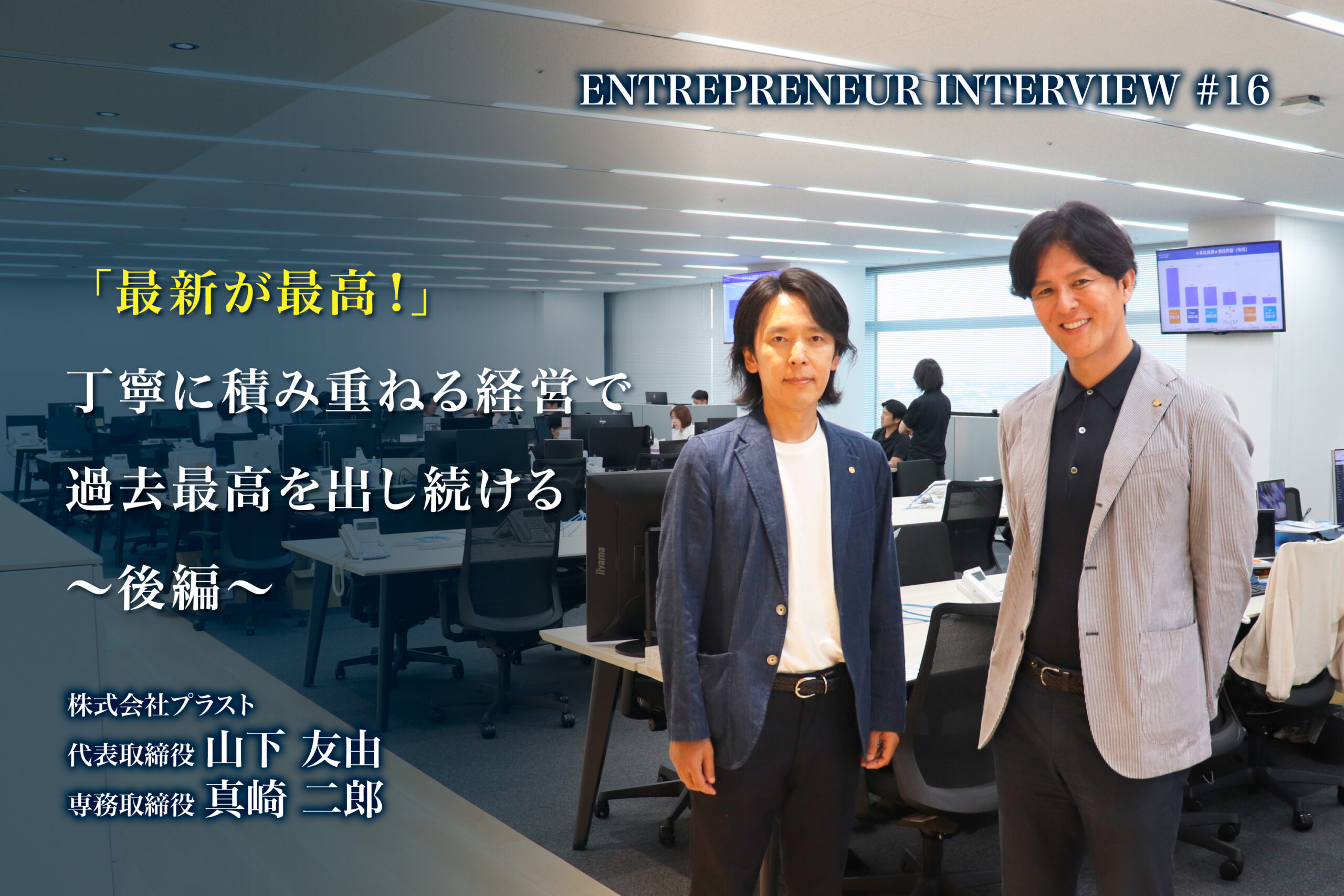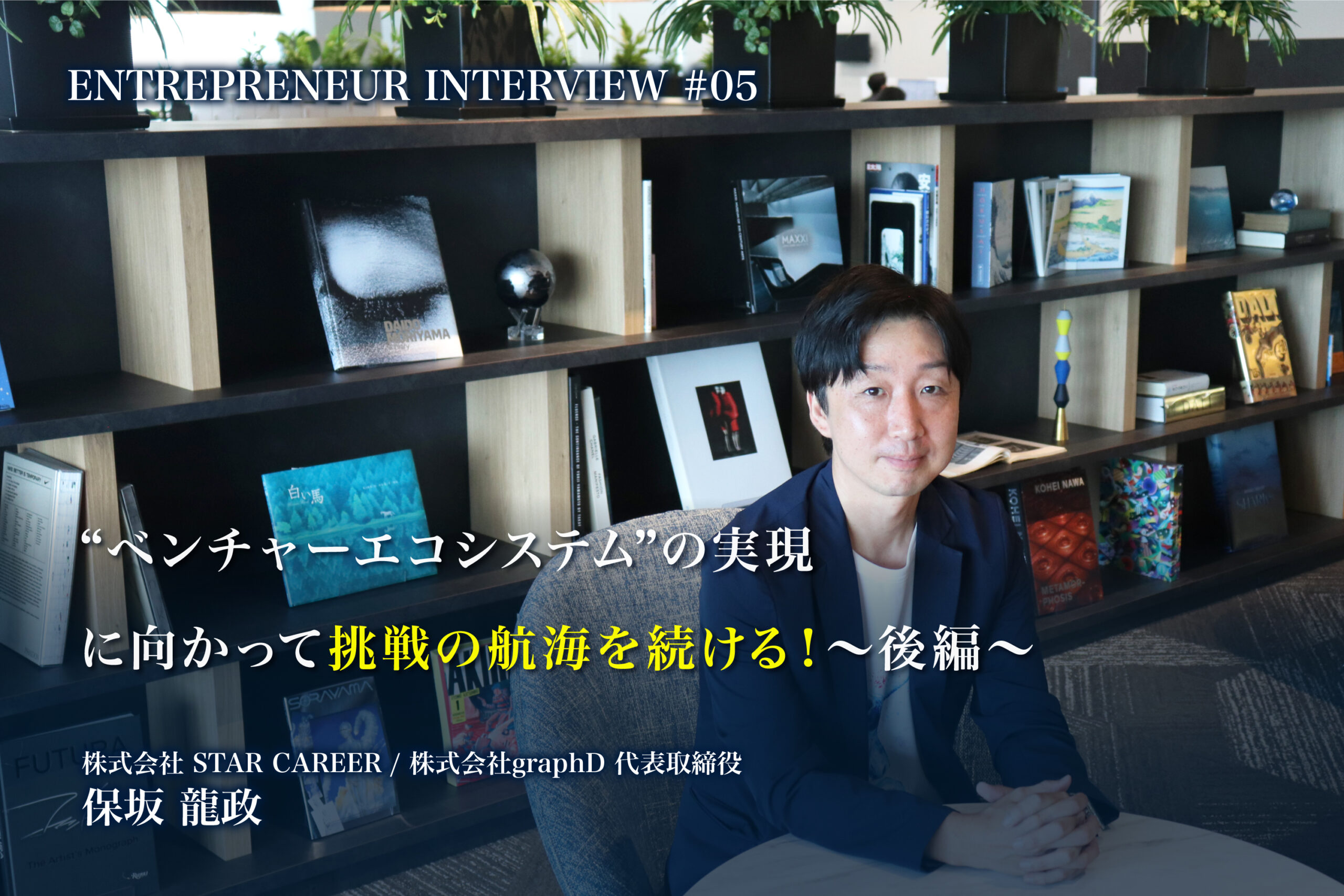
Interview with Tatsumasa Hosaka: a Daring Voyage Toward Realizing a “Venture Ecosystem”
At D-POPS GROUP, we have 23 group companies as partners (at the time of publication).
On this occasion, D-POPS GROUP Advisor Genta Sugihara interviewed President Tatsumasa Hosaka, who founded STAR CAREER CO., LTD in 2016.
This is the latter part of the interview. To read the first part, click the link below.
https://d-pops-group.co.jp/en/column/star-career-interview-first-part/
◆The Market Environment
Sugihara:
Thank you. For my next question, you mentioned that in the case of STAR CAREER, there are a lot of new graduates. However, generally speaking, what are the current trends in recruitment?
Hosaka:
The job seeker’s market will continue into the future for sure. Businesses will struggle to recruit employees next April and the following April, especially.
A lot of companies, including major corporations, reduced their hiring numbers during COVID, and now many are lacking sufficient talent. As a result, demand for new graduate recruitment has increased tremendously. This situation is likely to continue through the hiring of graduates entering the workforce in 2026.
◆The Release of Carepo
(“Carepo” is a portmanteau of the words ‘career’ and ‘points’.)
Sugihara:
In the midst of that challenging recruitment environment, on July 1st, you released a smartphone app called “Carepo” (page is only in Japanese) that allows users to earn points while job hunting. First of all, could you introduce Carepo for us?
Hosaka:
The Carepo app that we released displays various job hunting events. When job seekers participate in these events through the app, they receive electronic money as points. It’s an app that combines point collecting with job hunting—something that seemed like it should have existed before but didn’t until now.
After its release, we’ve seen extremely positive reactions from both students and clients. Since it targets students graduating in 2026, we’re aligning our current approach with that graduating class.
Sugihara:
So then, you’re starting full-scale promotion from now. Do you have any goals for Carepo?
Hosaka:
As part of our 2025 fiscal year plan, we’re aiming for Carepo to receive 10,000 downloads.
It’s said that about 450,000 people in Japan are job hunting each year, so after first reaching 10,000 downloads, our next goal is to get 150,000 downloads in three years.
◆Industry-Academia Collaborative Events
Sugihara:
I heard that in connection with Carepo, you’ve been involved in industry-academia collaboration activities and giving lectures at universities. Could you tell me more about this?
Hosaka:
Yes, as part of a business school curriculum at a certain university, we actively sponsor activities where students set up booths at event venues like a barbecue festival to learn how to generate revenue as a business. In practice, there are various tasks involved—ordering equipment for attractions like shooting galleries and yo-yo fishing, selecting prizes, arranging staff, managing schedules for receiving deliveries, and handling event operations. We expect this provides valuable hands-on experience for the students.
We also plan to actively conduct lectures for job seekers, and we’re already receiving requests from universities and employment offices.
I originally aspired to be a teacher and hold a teaching license, so in a sense, one of my dreams has come true.
Sugihara:
What’s the intention behind conducting these activities?
Hosaka:
The original motivation for starting my business and subsequently launching the job hunting café and the Carepo app was to nurture talented individuals who can thrive in society through our business. I am very grateful that we continue to gain allies who resonate with these activities.
Regarding Carepo specifically, our idea is to eliminate employment inequality caused by information gaps, and we’ve received support from professors and lecturers at various universities. Rather than pursuing things purely from a business sense, we aim to create products that are widely endorsed by students, student organizations, and university officials. I want Carepo to become a resource that’s convenient and useful from multiple perspectives.
Sugihara:
That’s impressive. People who don’t put in the work can get a certain level of results just by pouring money into advertising. But instead of spending money, creating various innovations and earning things through your own sweat and legwork, so to speak—those outcomes are far more valuable than advertising. And more sustainable, too.
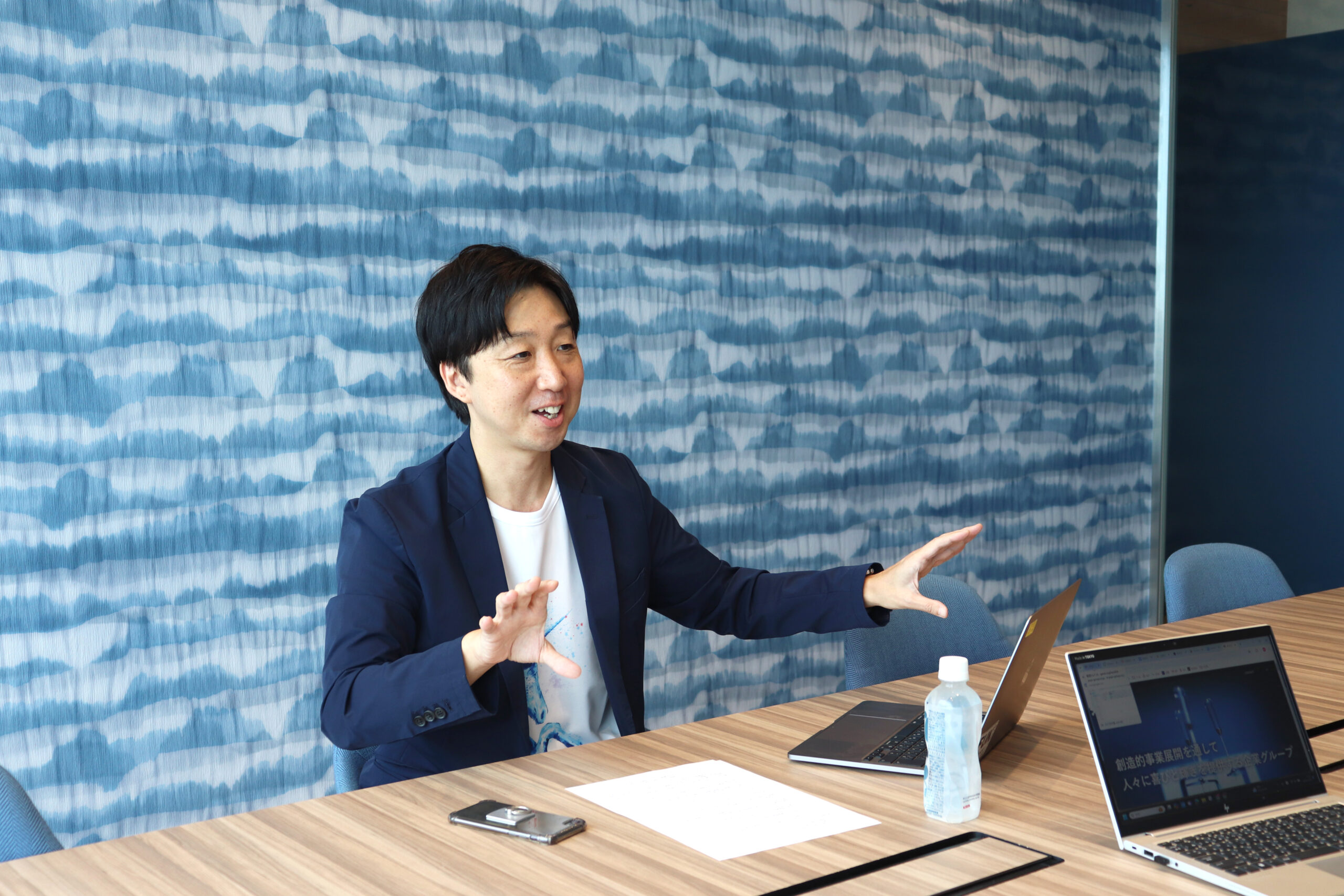
Hosaka:
Yes. Lecturing at universities and employment offices isn’t about status or branding—I simply want people to know about us, and I feel that through these activities, we’re gaining more supporters.
Also, regarding “eliminating job hunting inequality caused by information gaps”—as mentioned in our media release (article only in Japanese)—a university dean told me that this is actually a serious issue that needs to be addressed, especially for regional universities.
For example, in the Kanto region, job hunting events and seminars are typically held somewhere in Tokyo. When students living in Tochigi Prefecture and students living in Tokyo want to attend job hunting events, company information sessions, or recruitment fairs, the Tochigi students can certainly go, but they inevitably need to make more arrangements. It’s inconvenient to have to coordinate multiple company visits while in Tokyo.
This means that within the short timeframe of job hunting, if they are unable to meet with and receive the opportunity to have an interview from a decent number of companies, a significant gap in experience will result. If students can participate online through this app, or if our job hunting café advisors can provide information about events tailored to each student’s needs, they can job hunt more efficiently in terms of both cost and time. We believe this contributes to eliminating inequality caused by information gaps.
Sugihara:
Everyone recognizes that the information gap between metropolitan and regional areas is an issue that needs to be addressed across all fields. It’s important to spread this awareness, and your business is truly excellent.
◆STAR CAREER’s Corporate Culture
Sugihara:
Changing the subject completely, I have the impression that at STAR CAREER, within the group, people of all genders and ages are thriving. Looking at your website (page only in Japanese) and company newsletters, everyone has such bright, attractive smiles. There are messages on your website like “shine as your authentic self” and “accept and respect each other”. Is there a policy that you’re consciously implementing, President Hosaka? Could you tell us the background of this message about “shining as your authentic self”?
Hosaka:
Yes, regarding both the headquarters members and field staff appearing on STAR CAREER’s website…I think basically all our members are like that, without a doubt, ha ha.
But actually, this is the culture that President Goto built.
The main deciding factor for me—who originally aimed to be a teacher—to join D-POPS* was when President Goto told me, “As we build a 3-billion-yen company that grows to be worth 10 billion yen, then to 30 billion and 100 billion yen, I want to create an environment where young people can take on challenges, so I think it would be great to have someone like a teacher with us.”
*Note: D-POPS Corp. (page only in Japanese) is the company originally founded by D-POPS GROUP’s President and CEO Kazuhiro Goto.
Based on that kind of culture, President Goto now leads an entire group company and is moving forward to the next major domain, whether that be creating a Venture Ecosystem or contributing to society as an entrepreneur.
What I’m conscious of is that I want to pass on President Goto’s desire to provide a stage where young people can take on challenges and overcome them, even while bumping into walls. I’m working with the intention of continuing what I’ve inherited here at STAR CAREER, so I’m simply implementing at STAR CAREER what President Goto conveyed to me: creating an environment where young people can continuously take on challenges and communicating the value of facing obstacles.
Journey to the Venture Ecosystem, and Beyond
<Interview with D-POPS GROUP President Goto>https://d-pops-group.co.jp/en/philosophy/
Sugihara:
I see. Indeed, at most companies led by presidents who emerged from D-POPS, many members have genuine, warm smiles. Recently, there are also many companies that have joined without being brought up out of D-POPS. Have you had the opportunity to speak with any presidents of these other group companies?
Hosaka:
Yes! I enjoy good relationships with the presidents of various companies that have joined D-POPS GROUP. Simply put, I’m interested in the presidents and members of companies that have joined D-POPS GROUP. I myself have been in the D-POPS environment from the beginning, so as a fellow group president now, I want to know more about their situations before and after joining.
Sugihara:
It’s definitely important to have someone like you, President Hosaka, who takes interest in our members and actively expands the circle.
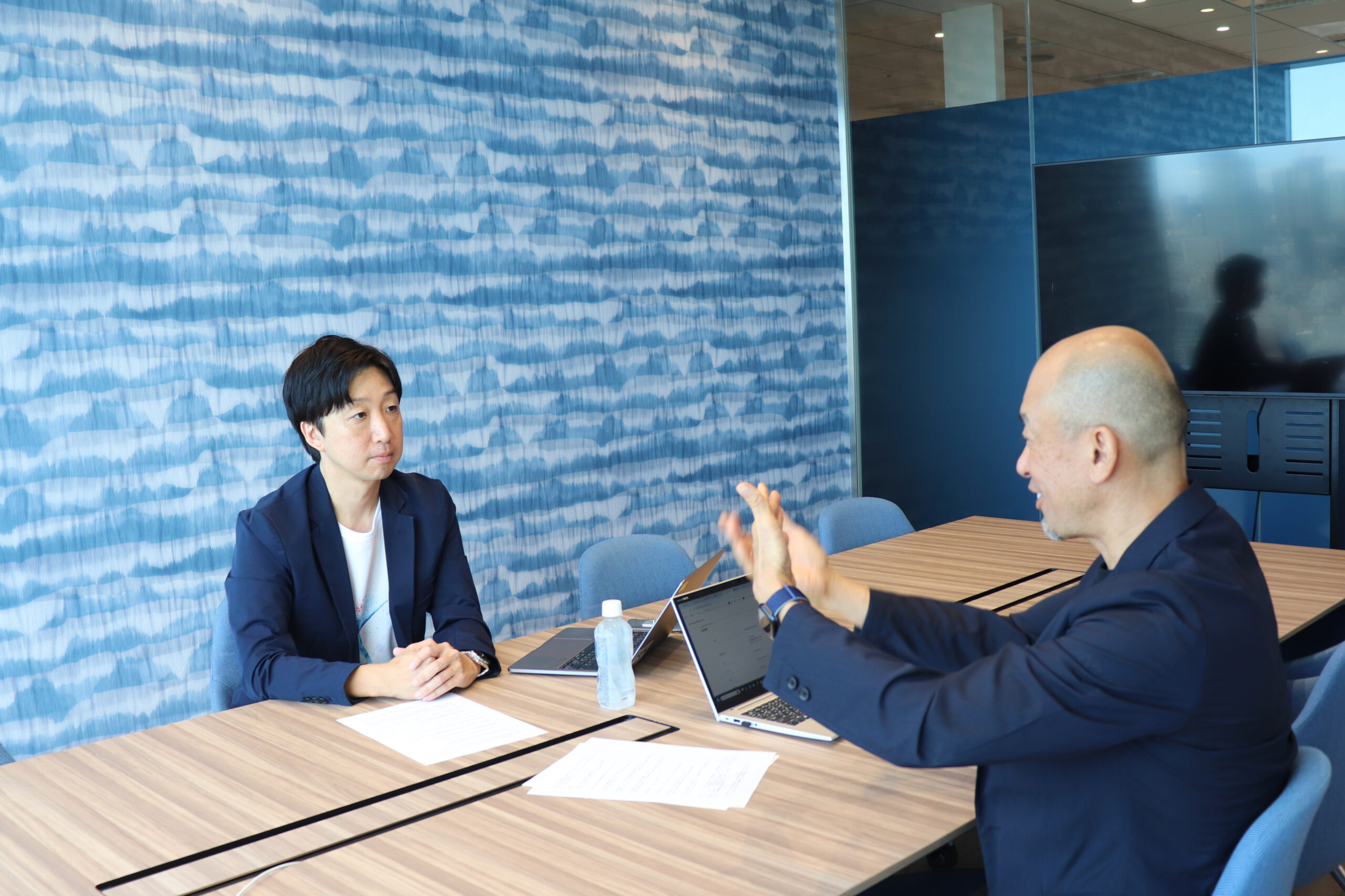
◆“Realizing a Venture Ecosystem”
Sugihara:
Returning to what you said earlier, the members of D-POPS GROUP (not only President Goto) would like to spread the key phrase “Venture Ecosystem” throughout Japan. Is there anything about realizing a Venture Ecosystem that resonates with you, and are there any such activities that you’re intentionally engaging in?
Hosaka:
Indeed, D-POPS GROUP has officially set its sights on realizing a Venture Ecosystem, but even from the time I joined D-POPS, there was already a stage where young people could take on challenges. I believe that the vision at D-POPS evolved into an even larger worldview in today’s D-POPS GROUP. I sincerely resonate with how the foundational thinking at D-POPS has expanded into a much broader worldview within D-POPS GROUP.
What I’m currently aiming for relates to places like the Shibuya Hikarie Building, where D-POPS GROUP’s headquarters is located. Since there are companies in various industries within D-POPS GROUP, I want to firmly establish that joining our group does not only mean gaining access to places like Shibuya Hikarie or industry know-how, but it also ensures increasing a company’s capability of recruiting core employees—even in a challenging job market.
Sugihara:
With 23 group companies now, being able to say things like “Our company is number one in recruitment capability”, or “Our company is number one in employee training”, or “Leave this backend system to us”—having various companies you can rely on for areas where you’re not as strong is one of the unique aspects of a Venture Ecosystem, you know.
◆Ideal Vision for STAR CAREER and graphD in 10 Years
Sugihara:
So, President Hosaka, could you tell us your ideal vision for STAR CAREER and graphD ten years from now?
Hosaka:
Simply put, I consider these two companies, STAR CAREER and graphD, as my assigned areas of responsibility in realizing the worldview that D-POPS GROUP is aiming for. For example, as D-POPS GROUP continues to grow, if they face challenges or need someone to handle certain tasks, I want to be someone who’s always ready to take action.
Sugihara:
Are there any initiatives you’re currently working on or challenges you face in moving toward that future?
Hosaka:
We do have some challenges, which we will address starting this October, in the second half of the fiscal year.
Actually, all the senior managers who were responsible for each of STAR CAREER’s business units have delegated authority to the next generation. So now, the members who previously worked under those managers have become the final operational supervisors, independently engaging with those clients and supporting team members.
I believe the reason why the 20-year survival rate for core businesses tends to be low is that even if they establish a business during an upward trend, they can’t ride the next wave once the business enters a stable or stagnant period. So, while developing three types of businesses—existing, core, and new—we’ve been able to expand our business fields from mobile phone shops to call centers, customer support, and back office support. We’ll continue to nurture the current trends as our existing business.
Mobile phone shops, which were once on an uptrend, have now stabilized, but call centers and customer support are expected to continue growing, partly due to the digital transformation wave. We’ve decided to entrust the growth of these existing businesses entirely to our younger staff. And our previous executives will handle the newer business ventures, such as RPO (Recruitment Process Outsourcing), Carepo, and job hunting café operations. We’ve changed our policy so that leaders who are responsible for new businesses should achieve certain sales targets within three years.
Sugihara:
I see. The people who joined during the company’s launch have cultivated an entrepreneurial mindset through the staffing business—in other words, they’ve studied and gained experience in new business development. That’s truly the venture spirit.
Hosaka:
For sure. Recently, when we pivoted our business during COVID, we developed new business areas, talent development, and related evaluation systems through a collective effort of all our members. Now we’ve made the decision to have the next generation of members drive the business forward.
Next, I intend to focus on properly launching Carepo and the RPO business. And we’re aiming to reduce the gross profit share of the staffing business from its current 90% to 50% over the next three years. The idea is to have our new businesses and the staffing business each account for half of our gross profit.
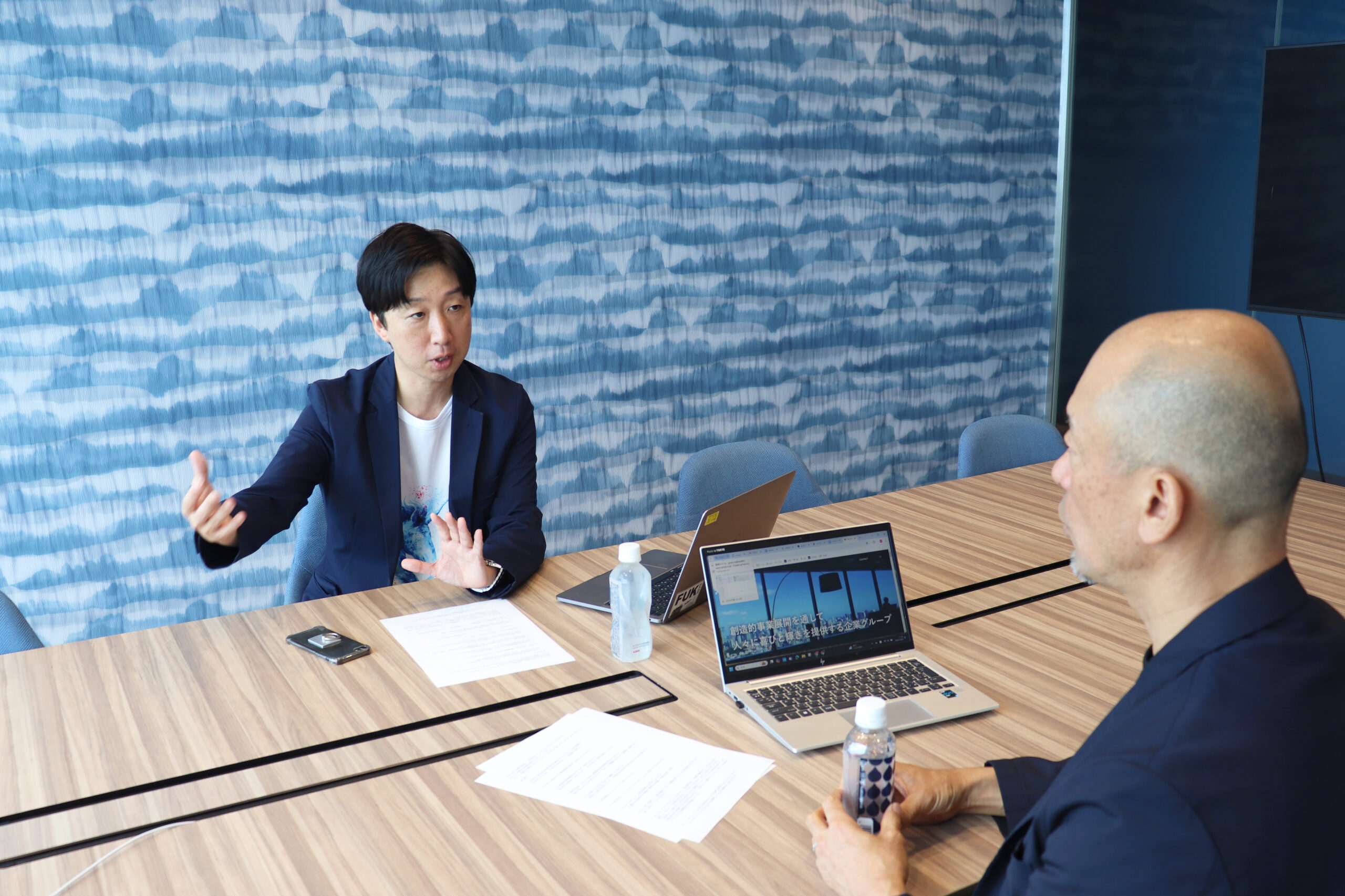
◆Message to Readers Visiting Our Website
Sugihara:
That’s a splendid goal.
Finally, in closing, could you share a message for our online readers?
Hosaka:
Of course. When I talk with various people from D-POPS GROUP, I always get a certain sense.
For example, there’s a famous manga with the repeated line “I’m going to become the Pirate King!” The protagonist is aiming to reach Treasure Island and earn the title of Pirate King. But interestingly, among the crew members on the same ship, only the protagonist wants to become the Pirate King.
One member wants to become the world’s greatest swordsman, another member wants to be able to create sea charts of the entire world—everyone is working hard toward the single goal of reaching that place, but what everyone wants to gain when they get there is different. I think D-POPS GROUP is like that.
Your dreams can come true in our Venture Ecosystem. There are many companions here, so we can cooperate with each other to fulfill each other’s dreams. I’m really looking forward to having more members join our Venture Ecosystem’s community in the future.
STAR CAREER CO., LTD
Company President and CEO: Tatsumasa Hosaka
Address: 25F Shibuya Cross Tower, 2-15-1 Shibuya, Shibuya-ku, Tokyo
Established: May 2016
Website: https://star-career.co.jp/




